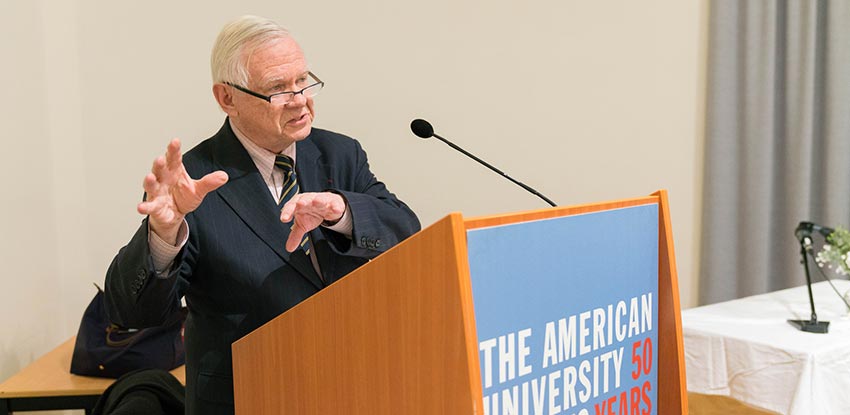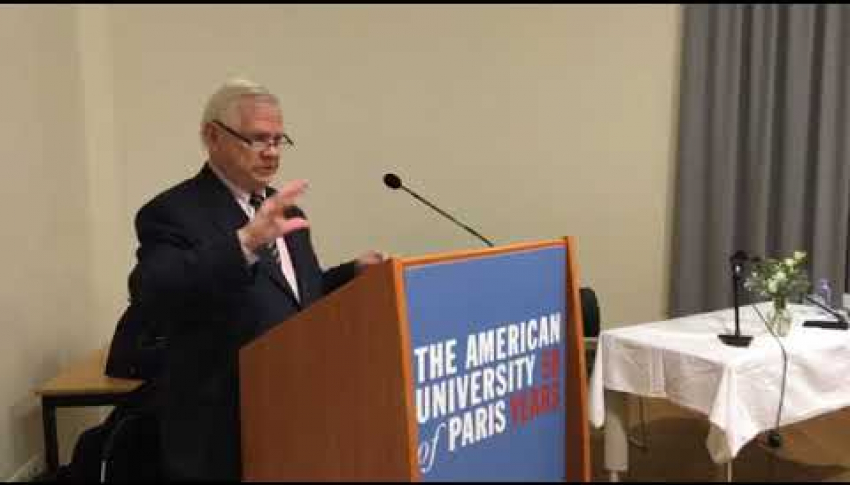- About AUP
- History of AUP
- Mission & Core Values
- Vision and Leadership
- AUP Recognition
- Alumni Success
- Campus Development
- Arts at AUP
- Policies & Guidelines
- Academics
- Undergraduate
- Graduate Programs
- MA in Diplomacy and International Law
- MA in Global Communications
- MSc in Human Rights and Data Science
- MA in International Affairs
- MA in International Affairs, Conflict Resolution, and Civil Society Development
- MSc in International Management
- MSc in Strategic Brand Management
- Find Your Thesis Advisor
- Previous Programs
- Cultural Program
- Faculty
- Summer School
- Research Centers
- The Center for Critical Democracy Studies
- Upcoming Events
- Research Projects
- Fellows’ Publications
- Publishing
- Curriculum
- Community
- Partnerships
- Visiting Scholars
- CCDS Highlights
- Atelier de Théorie Politique – Paris
- Critical Theory 101: Future Directions and New Challenges
- Martti Koskenniemi on “The Law of International Society: A Road not Taken”
- Academic Freedom Symposium
- Tocqueville Colloque 2023
- Violent Turns Conference
- Degenerations of Democracy
- DEMOS21 Inaugural Event
- What Demos for the 21st Century?
- The Paris Centennial Conference
- Justice Stephen Breyer
- Civic Jazz - The Launch of the Center
- Past Events
- FR
- The Center for Writers and Translators
- The George and Irina Schaeffer Center for the Study of Genocide, Human Rights and Conflict Prevention
- The Joy and Edward Frieman Environmental Science Center
- The Center for Media, Communication & Global Change
- The Center for Critical Democracy Studies
- Departments
- Academic Resources
- Academic Affairs
- Academic Calendar
- Academic Resource Center
- Library
- Registrar's Office
- Teaching and Learning Center
- Accessibility & Accommodation Services
- AI@AUP: A Campus-Level Initiative
- Quai D'Orsay Learning Commons
- Paris as Classroom
- ACE
- Admissions
- Student Life
- Campus
- Student Leadership & Involvement
- Paris
- Support Services
- Student Life Help Desk
- Student Accounting Services
- Student Immigration Services
- Student Grievance Procedure
- Diversity and Inclusion
- Health & Well-being
- Digital Student Handbook
- News
- Events
- AUP Giving
- Housing Offer for 2025-2026
- IT Services
- Alumni
- About AUP
- History of AUP
- Mission & Core Values
- Vision and Leadership
- AUP Recognition
- Alumni Success
- Campus Development
- Arts at AUP
- Policies & Guidelines
- Academics
- Undergraduate
- Graduate Programs
- MA in Diplomacy and International Law
- MA in Global Communications
- MSc in Human Rights and Data Science
- MA in International Affairs
- MA in International Affairs, Conflict Resolution, and Civil Society Development
- MSc in International Management
- MSc in Strategic Brand Management
- Find Your Thesis Advisor
- Previous Programs
- Cultural Program
- Faculty
- Summer School
- Research Centers
- The Center for Critical Democracy Studies
- Upcoming Events
- Research Projects
- Fellows’ Publications
- Publishing
- Curriculum
- Community
- Partnerships
- Visiting Scholars
- CCDS Highlights
- Atelier de Théorie Politique – Paris
- Critical Theory 101: Future Directions and New Challenges
- Martti Koskenniemi on “The Law of International Society: A Road not Taken”
- Academic Freedom Symposium
- Tocqueville Colloque 2023
- Violent Turns Conference
- Degenerations of Democracy
- DEMOS21 Inaugural Event
- What Demos for the 21st Century?
- The Paris Centennial Conference
- Justice Stephen Breyer
- Civic Jazz - The Launch of the Center
- Past Events
- FR
- The Center for Writers and Translators
- The George and Irina Schaeffer Center for the Study of Genocide, Human Rights and Conflict Prevention
- The Joy and Edward Frieman Environmental Science Center
- The Center for Media, Communication & Global Change
- The Center for Critical Democracy Studies
- Departments
- Academic Resources
- Academic Affairs
- Academic Calendar
- Academic Resource Center
- Library
- Registrar's Office
- Teaching and Learning Center
- Accessibility & Accommodation Services
- AI@AUP: A Campus-Level Initiative
- Quai D'Orsay Learning Commons
- Paris as Classroom
- ACE
- Admissions
- Student Life
- Campus
- Student Leadership & Involvement
- Paris
- Support Services
- Student Life Help Desk
- Student Accounting Services
- Student Immigration Services
- Student Grievance Procedure
- Diversity and Inclusion
- Health & Well-being
- Digital Student Handbook
- News
- Events
- AUP Giving
- Housing Offer for 2025-2026
- IT Services
- Alumni
Related Links
On January 26, Lee Huebner, current AUP Trustee and former President of AUP, spent a chilly Friday night discussing his latest book: Reflections on Globalization and the Media (Cognella Academic Publishing). The book examines how social turbulence and new media technologies have created post-truth environments, both in our world today and historically.
Huebner started the evening covering the first part of his book which was based on his lectures, including a course he taught at AUP – International Communications: Comparative Media Systems. The concept Huebner is interested in exploring throughout his work is the parallel between the historical idea of propaganda, particularly just before WWII, and today’s “fake news.” Huebner sees many similarities between these two modes of communication, many of them dangerous.
Huebner shared his thoughts of how the First World War helped to produce a "cult of propaganda" a hundred years ago, similar to the current obsession with "fake news."
The idea of publicity, as used by President Teddy Roosevelt over a century ago, Huebner finds hugely influential in today’s media landscape. “Publicity,” Huebner quoted Rooselvelt, “is the great cure, the great antiseptic. If you shine the light of publicity on public affairs, then things will start to go well.” However, not all people shared Roosevelt’s love of publicity as a form of transparency. That’s how the idea of “propaganda” came about and, at first, the term was used much in the way “fake news” is currently being employed.
The conversation dove into ancient Greece to talk about the founding ideas and concepts of democracy as well as the nascent years of the United States. Huebner reflected on how democracy became institutionalized, before discussing the ways in which publicity has historically been used and thought of in various generations. This included some surprise correlations, such as the late 19th century obsession with hypnotism and how it was represented through the novel, Trilby.
Trilby was the most popular book of its time. It gripped the public with the sinister character of Svengali, who hypnotizes a young woman, the eponymous Trilby, a woman without any musical talent, into becoming a world-class opera singer. Around the public obsession with hypnotism, Huebner finds a fear of mass media. “It expressed a popular mood,” Huebner said. “Some people thought that there was science behind this and that maybe these masters of the media could play a Svengali-like trick on you.”
As eluded to in the title of his latest book, Huebner finds that globalization is directly related to how the media is used now, particularly in politics.
An alumnus of Harvard University and Northwestern University, Lee Huebner spent 14 years as the publisher and CEO of the Paris-based International Herald Tribune. He also served as Deputy Director of the White House writing and research staff for US President Nixon’s administration. He is a founder of the Ripon Society, a political research organization, and The Center for the Study of International Communications in Paris (CECI). He has also chaired the American Chamber of Commerce in France and the European Council of American Chambers of Commerce. Today Huebner is the Airlie Professor of Media and Public Affairs at George Washington University.






